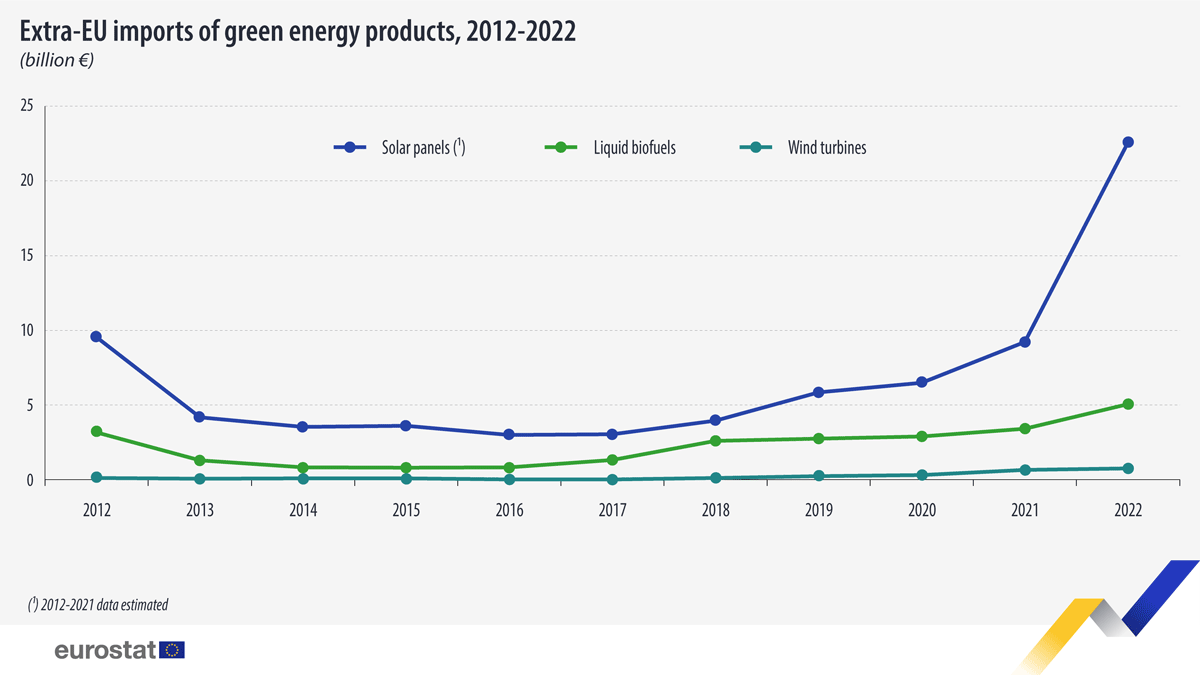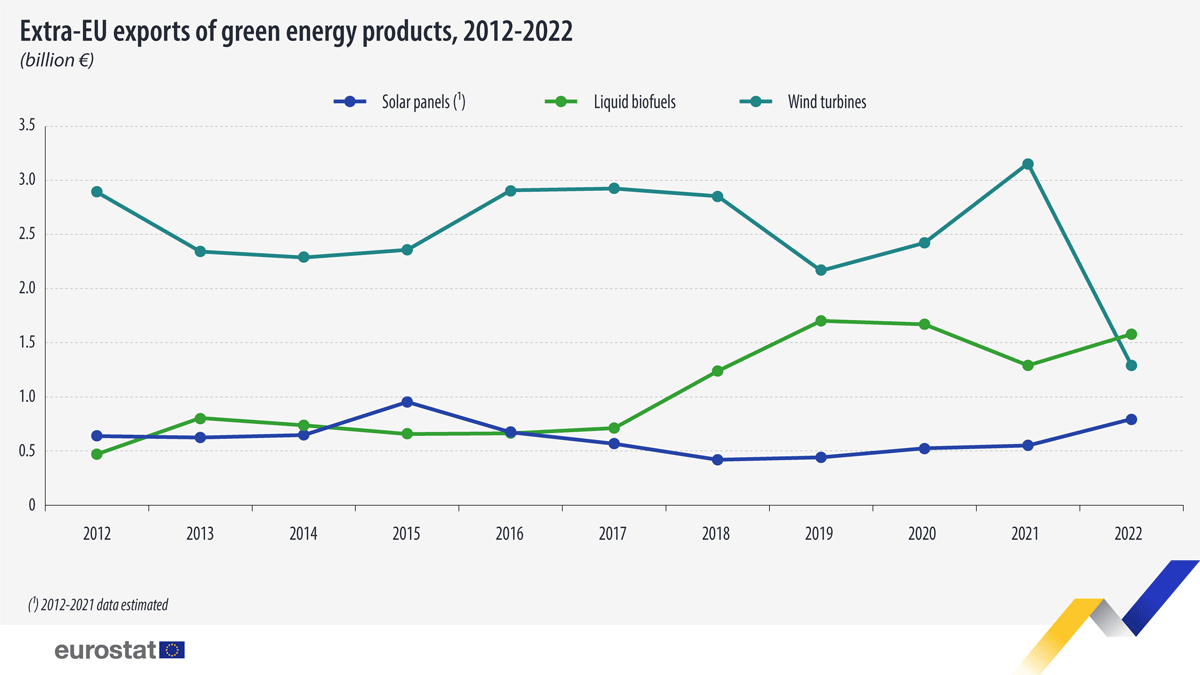Over €5 bn. Grant Funds for Green Energy Investments
Programmes to Increase Investor Appetite for RES
Renewable energy is one of the most important topics of discussion in the European Union, and the increased interest in green energy comes both against the backdrop of the conflict in Ukraine, which has increased energy prices across the continent, and the ‘European Green Pact’, which foresees a decrease in greenhouse gas emissions in the coming years, with non-reimbursable funds made available to EU countries as a concrete step towards achieving this ambitious plan.
The governments of the EU Member States have analysed the European Commission’s proposals and have prepared mechanisms to increase investments in the green energy sector, which is so important to reduce the environmental impact caused by the increasing consumption of energy from fossil fuels and other sources. Romania is no exception to this, and with the launch of the non-reimbursable financing schemes for investments in green energy from 2022, the renewable energy sector and the applications for connection to the National Energy System have experienced a rapid growth at local level.
EU Funding schemes that have increased investor appetite for green energy developments
In Romania, the access to non-reimbursable financing plays a key role in increasing energy efficiency, where more and more companies are starting substantial investments, with the support of European money, from programmes launched or in the process of being launched.
Energy is the main sector funded during this period, which started with NRRP funding from 2022 for companies that wanted to increase the energy efficiency of their production facilities. Basically, through NRRP – C6 Component – more than 700 companies applied for funding for green energy investments, of which around 500 were eligible to receive the requested funds. The budget of the scheme amounted to around €600 million, and the REI team submitted over 100 projects out of the total eligible, ensuring a market share of over 20% of the total submissions.
A new round of funding for green energy investments (POIM) was launched last autumn – with allocations for both public authorities and companies, with a total budget of over €150 million.
The funding of green energy projects does not stop here, and in the coming period we expect the opening of funding sessions of the Modernisation Fund Programme, with allocations exceeding €2 billion – funds available only for green energy investments – both production and self-consumption.
The agri-food sector’s call for applications, with an allocation of €150 million from the Modernisation Fund programme, was opened at the end of the year by the Ministry of Agriculture, where hundreds of farmers and companies active in the sector applied for the subsidies made available by the authorities to make energy costs more efficient.
On 6 December 2023, after a three-week delay, a scheme dedicated to public authorities was launched to provide non-reimbursable support for energy efficiency investments, with an allocated budget of over €500 million. The call was a competitive one, based on the “first come – first served” structure, and under this scheme the REI team submitted a total of more than 120 projects, while on the first day of submission more than 700 applications for funding were received from municipalities and county councils, which shows that 1 out of 5 projects submitted was brokered by the REI team.
We are seeing a huge interest in funding green energy projects, both from companies looking for cost optimisation or planning investments in green energy production, and from public authorities, who are facing very high utility costs and who want to make these costs more efficient.
Another funding programme targeting green energy investments will open during 2024. This is RePowerEU, a response by the European Commission to the difficulties and disruptions in the global energy market caused by Russia’s invasion of Ukraine.
The REPowerEU plan is to accelerate the green transition and promote massive investment in renewable energy and has required massive investment and reform, mobilising around €300 billion – some €72 billion will be in grants and around €225 billion in loans, with the Recovery and Resilience Mechanism at the heart of this funding.
The REPowerEU programme will provide Romania with more than €1.4 billion in new funding to create clean energy production and storage ecosystems (hydropower, photovoltaics, etc.).
Photovoltaic panels, a record in 2023
Imports of solar panels reached a record high in the EU last year, with an increase of around 2.5 times in 2021, according to Eurostat data[1]. When compared to 2017, the increase is more than 7 times higher.
EU countries paid over €28.4 billion for green energy equipment (solar panels, wind turbines and biofuels) from non-EU countries last year.
Most purchases were for photovoltaic panels (€22.6bn), an increase of 145% compared to 2021 (€9.2bn), and there was also an increase in imports of biofuels, up around 50%, while wind turbines saw a slower pace of demand, at only 17%.
As for exports of green energy equipment, they have fallen by about 30% compared to 2021.
Wind turbines saw the strongest decrease in demand in non-EU markets, of around 60%, while solar panels and biofuels saw increases of over 40% and over 20% in demand respectively.
Both statistics published by Eurostat clearly show the trend in the European Union to increase investment in renewable energy, while many EU countries still use coal or gas or other traditional energy solutions.
Romania is evolving from one day to the next in terms of the use of green energy solutions, especially from hydro sources, and the investment projects that will be undertaken both to increase energy efficiency and in the production of green energy will position our country even higher on the list of EU countries using renewable energy.
Another Eurostat statistic shows that more than 40% of the energy consumed in the European Union comes from renewable sources[2], and Romania is ahead of much more economically developed countries such as France, Poland, Belgium, and the Czech Republic, with huge potential for development in the years to come.
The statistics also highlight that renewables have been the main source of energy in the EU since 2016, when they overtook nuclear power for the first time. Since then, the share has been steadily increasing.
About REI Grup
REI FINANCE ADVISORS, REI INTERNATIONAL CONSULTING and TOUCHED MARKETING, part of REI Grup, are companies specialized in the development, implementation, and monitoring of investment projects both through non-reimbursable European funds (Regional Operational Programme, Large Infrastructure Operational Programme, PNDR) and state aid schemes (GD 959/2022, GD 495/2014, GD 807/2014, GD 332/2014, GEO 81/2019, GEO 130/2020).
According to the 2022 data, REI ranks second nationwide among consultancy companies specialising in attracting funding from European funds and state aid.
The REI team currently comprises over 90 specialised consultants in 13 offices nationwide, with extensive experience in attracting grant funding for companies operating locally or internationally.
REI has successfully attracted funding for over 1,000 clients nationwide, with over 1,000 projects implemented and a success rate – leading the field – of 99%.
With more than 10 years of experience, REI’s specialists are easily adaptable to market requirements, with a good knowledge of the mechanisms of non-reimbursable funds and identify opportunities to obtain funding from internal and external sources. They efficiently manage project activities, relations with public authorities and private companies, both multinationals and Romanian entrepreneurial companies. More details about REI’s activity, here.
[1] https://ec.europa.eu/eurostat/en/web/products-eurostat-news/w/ddn-20231109-3
[2] https://ec.europa.eu/eurostat/web/products-eurostat-news/w/ddn-20230403-1








